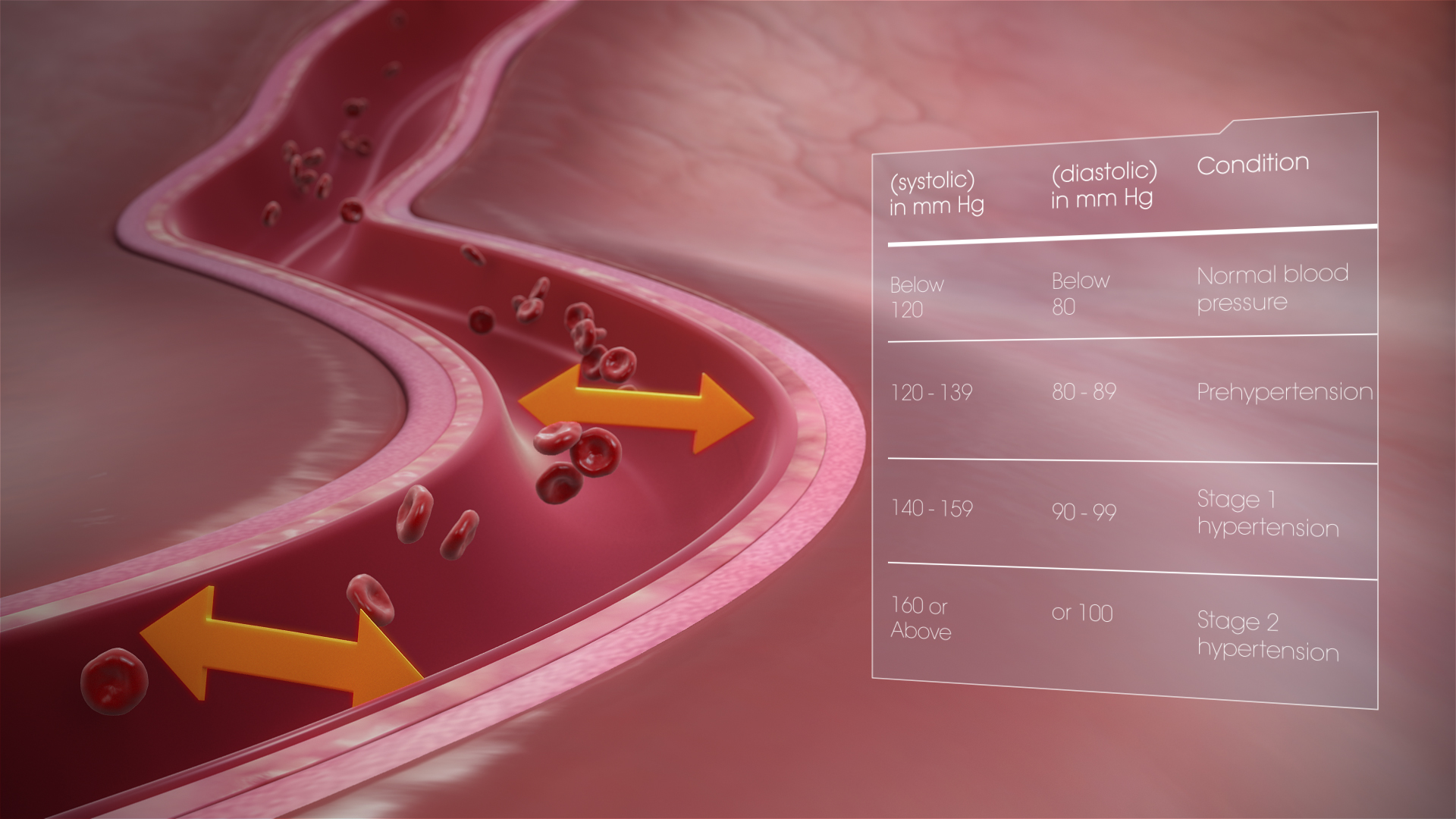Hypertension: A Global Picture
Blood pressure seems to be rising worldwide. An analysis published in the Journal of the American Medical Association, based on more than 8 million people from 154 countries across 844 studies, revealed that 3.5 billion adults have blood pressure high enough to bring some risk, i.e. at least 110-115 mm Hg, and 870 million people around the world suffer from hypertension (systolic blood pressure close to 140 mm Hg).
Systolic blood pressure can escalate quickly in older adults. Uncontrolled blood pressure can cause a disability, a poor quality of life or even a fatal heart attack.
Hypertension can silently damage the body before symptoms develop. About half the people with untreated hypertension die from ischemic heart disease and the rest one-third die of stroke.
But Hypertension risks more than just the heart…
Elevated systolic blood pressure has been linked to kidney and cerebrovascular disease as much as it is associated with heart disease and stroke.
A number of complications may arise as a result of hypertension:
Arterial damage
Hypertension can damage the inner lining of the arteries making them narrow and less elastic. Fat collects in these damaged arteries, limiting blood flow throughout your body. Over time, the constant pressure of blood moving through a weakened artery can cause a section of its wall to enlarge and form a bulge (aneurysm). An aneurysm can potentially rupture and cause internal bleeding.

Brain damage
Transient Ischemic Attack (TIA) or Mini Stroke: A brief, temporary disruption of blood supply to your brain, often caused by atherosclerosis or a blood clot (both of which can arise from high blood pressure), is often a warning that you're at risk of a full-blown stroke.
Stroke: A stroke occurs when a part of the brain cells die as a result of deprivation of oxygen and nutrients. Hypertension can lead to narrowing, rupturing or leaking of blood vessels and can also cause blood clots in the arteries that connect to the brain, blocking blood flow and potentially causing a stroke.
Dementia and mild cognitive impairment: Dementia is a brain disease resulting in problems with thinking, speaking, reasoning, memory, vision and movement. One of the many causes of dementia is vascular in nature; resulting from thinning of blood supplying arteries to the brain, for which, of course, hypertension may be the culprit.
Kidney failure
Both large arteries leading to kidneys and the tiny blood vessels (glomeruli) within them could be damaged due to hypertension. Inefficient filtration can lead to fluid and waste accumulation up to dangerous levels. The damage can be either in the form of aneurysm of the renal artery that can occur as a consequence of atherosclerosis, or scarring of the glomeruli known as glomerulosclerosis.
Vision problems
Capillaries that supply blood to eyes, too, can get damaged by high blood pressure. Retinopathy can lead to bleeding in the eye, blurred or sometimes even complete loss of vision. High blood pressure, accompanied with diabetes puts one at an even greater risk.
Choroidopathy is a condition in which fluid builds up under the retina because of a leaky blood vessel lying under it.
Optic neuropathy results from blocked blood flow damaging the optic nerve. It can kill nerve cells in the eyes, which may cause bleeding within your eye or vision loss.
Sexual dysfunction
Erectile dysfunction becomes is common among men who suffer from hypertension. This is because high blood pressure, over time, damages the cells lining the blood vessels, causing them to harden and narrow, thereby limiting blood flow to the penis.
In women, too, hypertension can reduce blood flow to the vagina. This may cause a decrease in arousal, or difficulty achieving orgasm.
Bone loss
High blood pressure causes excretion of calcium. That excessive elimination of calcium may lead to loss of bone density (osteoporosis). The risk is especially increased in older women.
Obstructive sleep apnea, a condition in which your throat muscles relax causing you to snore loudly, occurs in more than half of those with high blood pressure. Sleep deprivation, in turn, raises blood pressure.
Sources:
- Global Burden of Hypertension and Systolic Blood Pressure of at Least 110 to 115 mm Hg, 1990-2015
- Why Blood Pressure Is Rising Worldwide?
- How Does the Body Regulate Blood Pressure?
- High blood pressure (hypertension)
Not all exercises are equal when it comes to Hypertension
In 2014, 410,000 Americans lost their lives with hypertension as a primary or contributing cause. Even more surprising is that more than half of hypertensive Americans do not take medications to control blood pressure. Read More..








